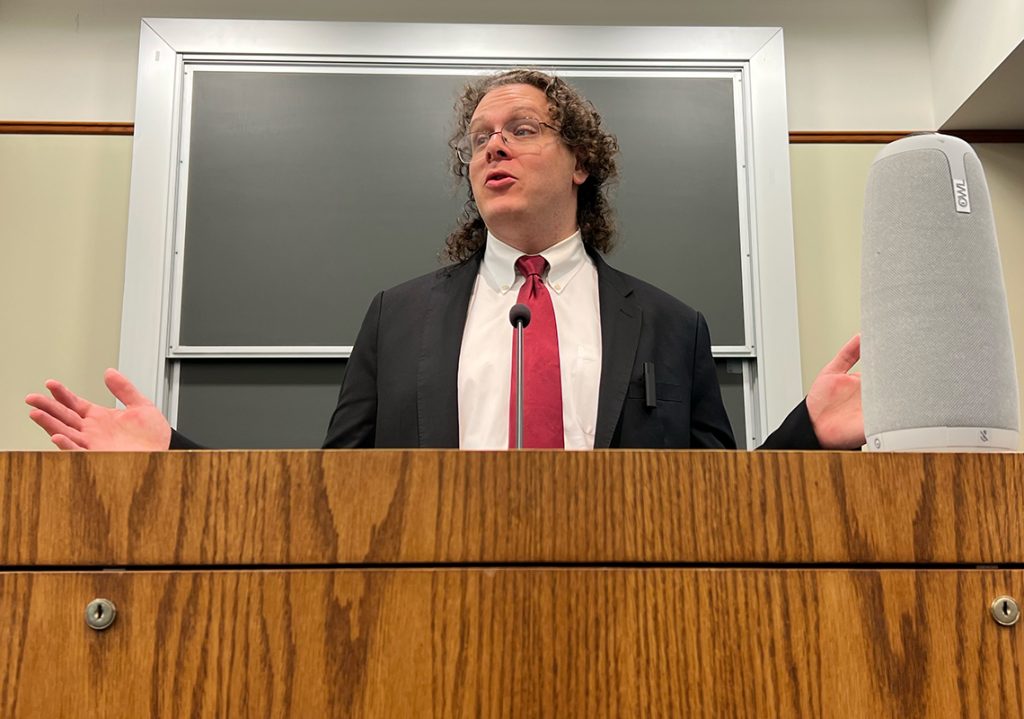Can the courts keep Donald Trump off the ballot of the 2024 presidential election? The answer to the question comes down to interpretation of the Constitution, according to Joshua Blackman, a law professor and thought leader on constitutional law. Speaking at a BC Law Federalist Society event on January 24, Blackman focused his presentation Section 3 of the 14th Amendment, which is at the center of the debate.
Acknowledging that many are unfamiliar with this section, which was passed in the wake of the Civil War, Blackman explained that it disqualifies anyone who has taken an oath as an officer of the United States from holding office if they have engaged in insurrection. The key word in the text that has raised questions about Trump’s eligibility is the word “of.”
“This language matters,” says Blackman. “The outcome of the next election turns on whether the president is an officer of the United States or if the presidency is an office under the United States.”
Based on the wording of Section 3, Blackman argued that Trump could only be disqualified if he is considered an officer of the United States from his time as president. In support of his reasoning, he examined four provisions of the Constitution that use this phrasing: The Appointments Clause, he said, refers to an officer of the United States as an appointed position. However, the president is not appointed, but rather, elected by voters. The Impeachment Clause names the president separately from civil officers and the Commissions Clause allows the president to commission all officers, both signifying that the president is not an officer themself. Finally, Blackman said, the Oath Clause does not include the president in the list of officers required to take an oath to the Constitution. The president is required, however, to take an oath under Article II, which does not pertain to officers.
Opponents of Blackman’s position argue that there is not a difference between the terms officer of and officer under. They believe that this language in the Constitution is synonymous and should not be interpreted so strictly. The 1866 Conkling Report came to this very conclusion, based on an earlier impeachment trial which determined that the words could be used indiscriminately. Critics also reference the 1861 debates over the drafting of the 14th Amendment, when Senator Lot Morrill convinced Senator Reverdy Johnson that the president is covered in the phrase “officer under” the United States.
On February 8, the Supreme Court is scheduled to hear the arguments of this case. Currently, the states of Colorado and Maine have removed Trump from their ballots. If the Supreme Court affirms these rulings, other states can also choose to remove him, or may even be required to if he is deemed constitutionally disqualified from running.
“The stakes of this case are quite high,” Blackman stressed. “A ruling against Trump affirming across the board would take him off the ballot probably in all fifty states.”


